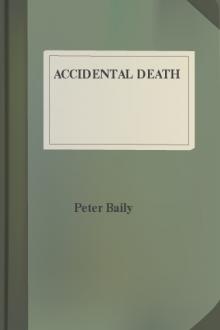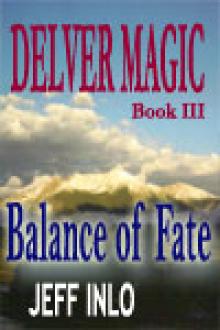Eco: Foucalt's Pendulum by eco foucault (important books to read .txt) 📗

- Author: eco foucault
Book online «Eco: Foucalt's Pendulum by eco foucault (important books to read .txt) 📗». Author eco foucault
At first I thought thesewere the offices of the Garamond directors, but I soon learnedotherwise. This was another publishing firm entirely. The Garamondlobby had a little glass case, dusty and clouded, displaying thelatest publications, but the books were unassuming, with uncutpages and sober gray covers imitating French universitypublications. The paper was the kind that turned yellow in a fewyears, giving the impression that the author, no matter how young,had been publishing for a long time. But here the glass case,lighted inside, displayed Manutius books, some of them opened toreveal bright pages. They had gleaming white covers sheathed inelegant transparent plastic, with handsome rice paper and cleanprint.
Whereas the Garamondcatalog contained such scholarly series as Humanist Studies andPhilosophia, the Manutius series were delicately, poetically named:The Flower Unplucked (poetry), Terra Incognita (fiction), The Hourof the Oleander (including Diary of a Young Girl's Illness), EasterIsland (assorted nonfiction, I believe), New Atlantis (the mostrecent release being Kdnigsberg Revisited: Prolegomena to AnyFuture Metaphysics Presented as Both a Transcendental System and aScience of the Phenomenal Noumenon). On every cover there was thefirm's logo: a pelican under a palm tree, with the D'Annunzianmotto "I have what I have given."
Belbo had been laconic:Signor Garamond owned two publishing houses. In the days thatfollowed, I realized that the passageway between Garamond andManutius was private and secret. The official entrance to ManutiusPress was on Via Marchese Gualdi, the street in which the purulentworld of Via Sincero Renato ceded to spotless facades, spacioussidewalks, lobbies with aluminum elevators. No one could havesuspected that an apartment in an old Via Sincero Renato buildingmight be joined, by a mere three steps, to a building on ViaMarchese Gualdi. To obtain permission for this, Signor Garamondmust have Had to perform feats of persuasion. I believe he had helpfrom one of his authors, an official in the City PlanningBureau.
We were receivedpromptly by Signora Grazia, bland and matronly, her designer scarfand suit the exact color of the walls. With a guarded smile sheshowed us into an office that recalled Mussolini's.
The room was not soimmense, but it suggested that hall in the Palazzo Venezia. Here,too, there was a globe near the door, and at the far end themahogany desk of Signor Garamond, who seemed to be looking at usthrough reversed binoculars. He motioned us to approach, and I feltintimidated. Later, when De Gubernatis came in, Garamond got up andwent to greet him, an act of cordiality that enhanced even more thepublisher's importance. The visitor first watches him cross theroom, then crosses it himself, arm in arm with his host, and as ifby magic the space is doubled.
Garamond waved us toseats opposite his desk. He was brusque but friendly: "Dr. Belbospeaks highly of you, Dr. Ca-saubon. We need good men. You realize,of course, we're not putting you on the staff. Can't afford it. Butyou'll be well paid for your efforts. For your devotion, if I maysay so, because I consider our work a mission."
He mentioned a flat feebased on estimated hours of work; it seemed reasonable for thosetimes. I accepted.
"Excellent, Casaubon."Now that I was an employee, the title disappeared. "This history ofmetals," he went on, "must be splendid¡Xmore, a thing of beauty.Popular, but scholarly, too. It must catch the reader'simagination. An example. Here in the first draft there is mentionof these spheres¡Xwhat were they called? Yes, the Magdeburghemispheres. Two hemispheres which, when put together and the airis pumped out, create a pneumatic vacuum inside. Teams of drafthorses are hitched to them and they pull in opposite directions.The horses can't separate the hemispheres. This is scientificinformation. But it's special, it's picturesque. You must single itout from all the other information, then find the right image¡Xafresco, an oil, whatever¡Xand we'll give it a full page, incolor."
"There's an engraving Iknow of," I said.
"You see? Bravo! A wholepage. Full color."
"Since it's anengraving, it'll have to be in black and white," I said.
"Really? Fine, black andwhite it is. Accuracy above all. But against a gold background. Ithas to strike the reader, make him feel he's there on the day theexperiment was carried out. See what I mean? Science, realism,passion. With science you can grab the reader by the throat. Whatcould be more dramatic than Madame Curie coming home one eveningand seeing that phosphorescent glow in the dark? Oh, my goodness,whatever can that be? Hydrocarbon, golconda, phlogiston, whateverthe hell they called it, and voila, Marie Curie invents X rays.Dramatize! But with absolute respect for the truth."
"What connection do Xrays have with metals?" I asked.
"Isn't radium ametal?"
"Yes."
"Well then. The entirebody of knowledge can be viewed from the standpoint of metals. Whatdid we decide to call the book, Belbo?"
"We were thinking ofsomething sober, like Metals."
"Yes, it has to besober. But with that extra hook, that little detail that tells thewhole story. Let's see...Metals: A World History. Are there Chinesein it, too?"
"Yes."
"World, then. Not anadvertising gimmick: it's the truth. Wait, I know: The WonderfulAdventure of Metals."
It was at that momentSignora Grazia announced the arrival of Commendatore De Gubernatis.Signer Garamond hesitated, gave me a dubious look. Belbo made asign, as if to say that I could be trusted. Garamond ordered theguest to be shown in and went to greet him. De Gubernatis wore adouble-breasted suit, a rosette in his lapel, a fountain pen in hisbreast pocket, a folded newspaper in his side pocket, a leatherettebriefcase under his arm.
"Ah, my dearCommendatore," Garamond said, "come right in. Our dear friend DeAmbrosiis told me all about you. A life spent in the service of thestate. And a secret poetic vein, yes? Show me, show me the treasureyou hold in your hands...But first let me introduce two of mysenior editors."
He seated the visitor





Comments (0)